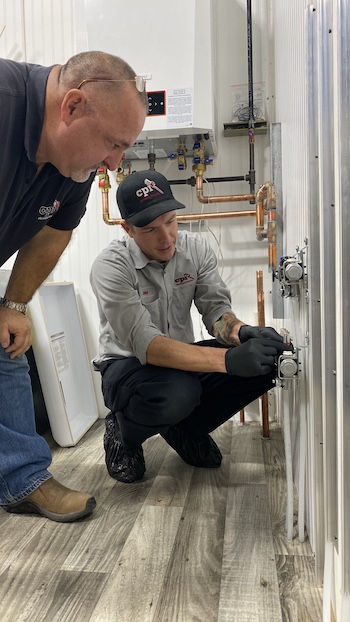No matter how good you are at your work or how talented your team is, there are always going to be times in the when customers complain about your work – it is just a fact of business life that you cannot please all of the people all of the time.
It can be upsetting, frustrating, and annoying when you receive a complaint, especially if you do not believe that it is warranted, but it is important, when those complaints come in, that you stay calm and handle the issues in the right way. By doing this, you can keep your customers on side and minimize the potential damage to your company’s reputation.
Make it easy to complain
As a company owner, you probably don’t want to hear people complaining about the quality of the work or how much mess your contractors make, but it is going to happen eventually whether you like it or not, so it is a really good idea for you to make the complaints process as simple as possible.
Why should you do this? Because if a customer finds it almost impossible to find your constant information or actually get in touch with a complaint, they are always going to get more and more frustrated, so when they do finally get in touch with a representative of your company, they are going to be mad and much less likely to listen to reason or want to solve the problem amicably.
How do you make it easy to complain? Put your contact information front and center on your company’s website, and include a clear section on making complaints. Look at chatbot integrating into website services and make a live chat option available along with an AI chatbot so that customers can immediately find the information they need and get answers to some of the most common queries. Oh, and make sure you hire enough customer service staff to deal with complaints so that no one gets left hanging for too long.
 Provide training
Provide training
One of the things so many construction companies get wrong about customer service is that they do not think they need anyone trained in customer care to handle it. They let their secretaries or conservation staff answer the phones and deal with issues, and this is really not the optimum way to go about things.
Good customer service is much more complicated than you might think, It involves a delicate balance between actively listening to the customers, quickly coming up with solutions, and being able to negotiate in difficult situations. That means if you want to get the complaints process right, you need to hire and train good customer service staff and keep their training up to date as your business grows and changes.
Write it down
When a customer makes a complaint, you should try to create a written copy for both your records. This will help to ensure that you both understand the issue in detail so that the customer can not come back later and say you ignored X, Y, and Z or did not fix W when in fact they did not even bring that up as part of the complaint.
It is not unusual for customers to get confused about the nature of their complaints, so having a written record is a good way to protect yourself.
Of course, having a written record is also a good way to ensure you and your team know what issues you need to be looking into, and do not forget to act within an acceptable timeframe.
Don’t take it personally
One of the worst things you can do when someone complains about the quality of their build or the lateness of your employees is to take their complaint personally. You may be running your construction company as best you can, but that does not mean that things cannot go wrong from time to time or that you will not end up dealing with a customer who expects more than you can deliver.
If you get your back up and start getting offended by what they are telling you, it is very unlikely that you will be able to solve the issue amicably.
Take a deep breath, listen to what the customer has to say, and then take another deep breath. Acknowledge what they have said and why it upsets them and then calmly put your side across. Ask them what they would like to do to resolve the issue and try to find a way to meet them in the middle. You may need to negotiate for a while, but if you keep your cool, chances are you will be able to come to a mutually acceptable resolution in the end.
Do not discuss things with out of control customers
Of course, if a customer calls you with a complaint and they are so angry that they are seeing red, it is not really a good idea to engage with them, it is much better to find a way of politely calming explaining to them that you are eager to hear their complaint but you/ your employees will not be shouted at or talked to in a derogatory manner. If they do not calm down immediately, give them the details of how they can contact you at a later date and tell them you are going to put the phone down. Nothing good will come of getting into a fight with your customers, so in his instance, it really is better to disengage for a little while, at least.
Kill them with kindness
A good strategy for dealing with customer complaints is to simply kill them with kindness. Even the most defensive complaints will soon warm to your company if you offer them nothing but kindness and understanding and if you go out of your way to help them. So, be sure to thank them for their complaints and for bringing the issue to your attention. Let them know that you take complaints seriously and you want to get to the bottom of things. Basically, make them feel understood and listened to if you want to get them onside.

Think about what you can do
Once you have discussed the complaint, ask for a little time to think about the best course of action to put it right. Many customers will want an immediate response, but if you explain to them that taking as little time out will let you really think about the issues and how best to resolve them, most will be fine with that.
Then, you need to actually think about what you can do to rectify the issue. So, if your builders have dragged mud through a customer’s home, you could offer to pay for a carpet cleaning service to solve the issue or if they have made an error when installing a wall. You could have them go back and redo it. Often, though, it is much easier to come to a financial settlement with your customers when they are complaining.
Of course, you should always ask them what they expect to happen before you start thinking about what you can offer because this will give you a good idea of what they want and what kind of offer from you is most likely to be accepted and solve the problem as swiftly as possible with no hard feelings.
Don’t promise something you cannot deliver
Of course. When it comes to agreeing on a resolution, the worst thing you can do is to promise a solution that you simply cannot deliver on. If you do this, then you are only going to upset and infuriate your customer more and they will end up going on
If you are able to keep calm. Listen to the customer and do everything you can to resolve their complaints in a fair and amicable way, your business will be so much stronger as a result, and you will have many more satisfied customers in the end too.
Fail to do so and chances are they will take to the internet to leave bad reviews about your construction company, which is particularly bad news because no one wants to hire a dishonest and unreliable contractor to work on their property.
So. although it might be tempting to say you’ll send someone round to correct their faulty window installation in the morning unless you know you will have staff available to do so, don’t promise that and stick to only ever offering things you can honor!
Say sorry
Oh, and one more thing, it is always a good idea to apologize to the person who is complaining about your construction company, even if you think their complaint is unfair or unwarranted. It will disarm them and show them that you are a caring company that is not going to fob them off.
Your aim when dealing with complaints is to leave the customer with the best possible impression of you possible and that starts with a simple apology. So suck it up and apologize.
We hope this helps you to handle complaints more effectively in the future.


 Provide training
Provide training


Join the conversation: